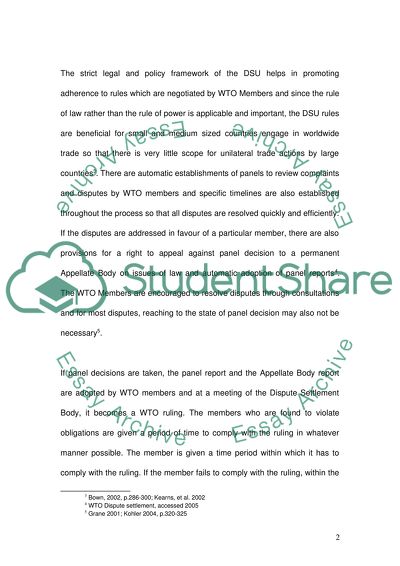Cite this document
(“Dispute Settlement Understanding Essay Example | Topics and Well Written Essays - 3500 words”, n.d.)
Retrieved from https://studentshare.org/politics/1501375-dispute-settlement-understanding
Retrieved from https://studentshare.org/politics/1501375-dispute-settlement-understanding
(Dispute Settlement Understanding Essay Example | Topics and Well Written Essays - 3500 Words)
https://studentshare.org/politics/1501375-dispute-settlement-understanding.
https://studentshare.org/politics/1501375-dispute-settlement-understanding.
“Dispute Settlement Understanding Essay Example | Topics and Well Written Essays - 3500 Words”, n.d. https://studentshare.org/politics/1501375-dispute-settlement-understanding.


